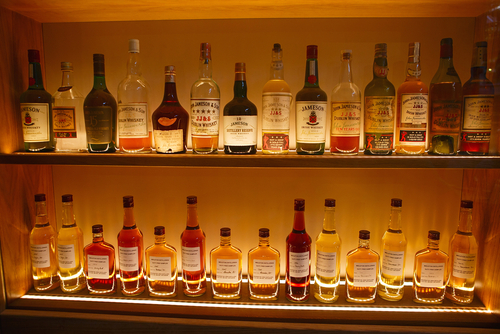Alcohol is one of the most commonly abused substances in the country. If you drink alcohol, you should understand what it is and how it can affect you. Knowing what alcohol does to the body and how it impacts your mind can help you determine if you need help with alcohol addiction. Here’s what you need to know.
Can Alcohol Be Considered a Drug?
Yes, alcohol is a drug. It’s a central nervous system depressant. Depressants slow down activity in the body, including heart rate and brain function.
In low quantities, alcohol can make people talkative, confident and happy. In this way, alcohol mimics the effects of stimulants.
People who drink alcohol in high quantities experience a variety of side effects including cognitive impairments, poor coordination, difficulty walking or talking, delayed reaction time, poor judgment and fewer inhibitions. Alcohol in high quantities also sedates the body.
Alcohol Content in Drinks
The amount of alcohol in alcoholic drinks varies depending on the type of drink.
Beer generally contains about 5% alcohol, while wine contains about 12% alcohol. Harder liquors contain about 40% alcohol.
Because of these varying percentages of alcohol, the way the drink is consumed affects how alcohol impacts the body.
Is Alcohol a Hallucinogen?
No, alcohol is not a hallucinogen.
However, some people might experience effects that would make them think it is a hallucinogen. Long-term alcohol use can cause delirium tremens Alcohol is a depressant.
Why Do People Think Alcohol is a Hallucinogen?
Sometimes in the detoxification process, people in withdrawal from alcohol experience hallucinations and even psychosis. Many people who experience these hallucinations find them terrifying.
Alcohol hallucinations are an extreme withdrawal symptom. People who experience this kind of withdrawal from alcohol need medical assistance throughout their withdrawal. This is because their body is having such a strong reaction to the lack of alcohol.
In addition, the condition known as alcohol-induced psychotic disorder is a mental illness characterized by psychosis when drinking or going through withdrawal.
Episodes of psychosis can last for months. Although the percentage of people who experience alcohol induced psychotic disorder is relatively small, it’s higher among people who abuse alcohol.
Sometimes this condition can lead people to actions of self-harm. This condition must be treated in order to protect the person experiencing it.
Why is Alcohol Addictive?
Despite the detrimental effects of alcohol, people continue to use and abuse alcohol. This substance is addictive in two ways: physically and psychologically.
People drink alcohol to relieve their anxiety and experience feelings of euphoria.
Alcohol stimulates the release of dopamine and endorphins, which make the body feel good. The more alcohol a person consumes, the more the brain comes to rely on the alcohol to trigger the release of dopamine and endorphins.
This causes a change in the way the brain works, so that when the person stops consuming alcohol, the brain’s chemistry is unable to perform normally or in a healthy way.
Eventually, a person who abuses alcohol must consume alcohol to feel normal. And, because the body can develop a tolerance to alcohol, the person who abuses alcohol must also continue consuming more over time just to achieve the same effects.
People who want to continue drinking alcohol, but in smaller quantities find this difficult because alcohol cuts back on the body’s natural inhibitions.
After one or two drinks of alcohol, drinking less starts to seem unimportant. This is why many people start drinking alcohol recreationally and eventually become addicted.
Signs of Alcohol Addiction
Sometimes it’s hard to tell if someone is addicted to alcohol. Knowing the common warning signs can help you decide whether you or someone you love has a problem.
Look for the following signs to determine if you or someone you love might be addicted to alcohol:
- Lies about drinking alcohol
- Drinks alone or with others
- Makes excuses to drink, e.g., needing to relax
- Experiences mood swings both when drinking and when wanting a drink
- Doesn’t always meet personal obligations because drinking got in the way
- Feels hungover when not drinking
- Drinks in secret
- Blackouts and memory loss
It’s important to remember that mild symptoms of alcoholism can give way to more extreme cases. People develop a tolerance and must drink more to feel the same effects they felt before.
While someone may start off as a social drinker, or even a functional alcoholic, this could eventually change.
Get Help
Wondering if you or someone you love is alcohol dependent?
Sometimes it’s hard to tell when someone has developed a dependency on alcohol. Seeking advice or information from an addiction counselor or professional treatment center can help you decide whether you or someone you love has a problem.
Get help today! It’s important to seek treatment earlier rather than later. Doing so can prevent an escalating problem. Alcohol is a drug as bad as any other, regardless of the fact that it is legal.
Search through our directory to find a treatment center near you. Help is only a phone call away.
Sources:
- Other Commonly Used Addictive Substances
- The Truth About Alcohol
- What is Substance Abuse Treatment?
- What is a Standard Drink?
- Alcohol Related Psychosis


